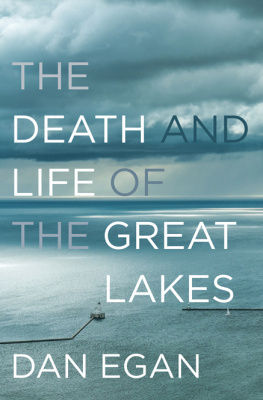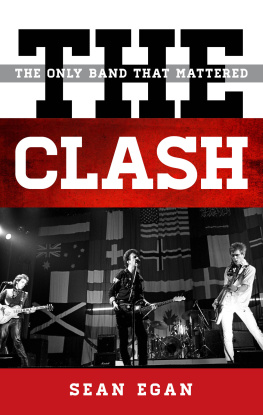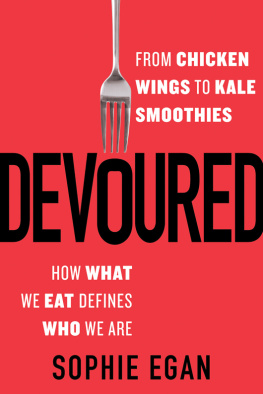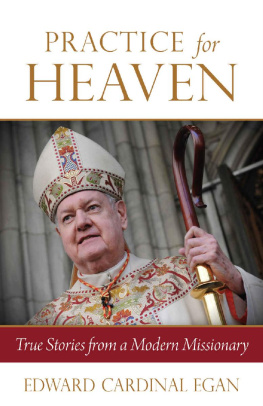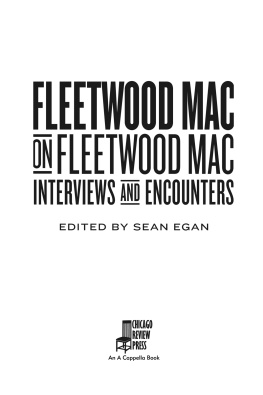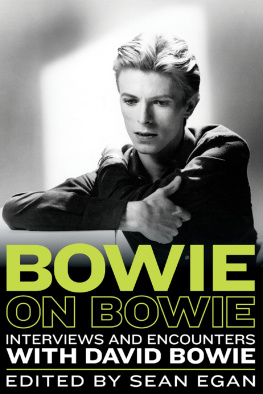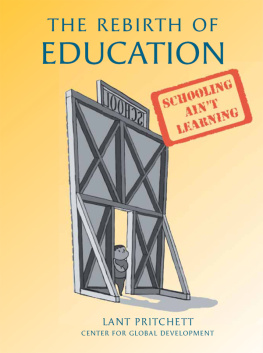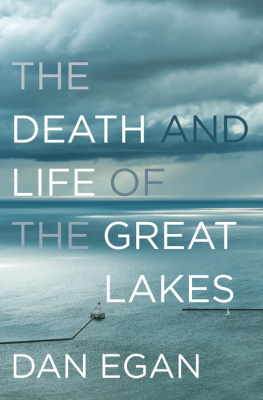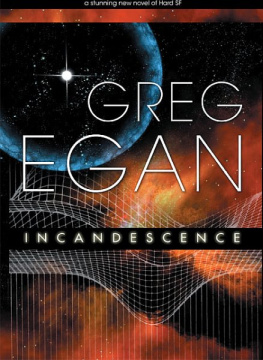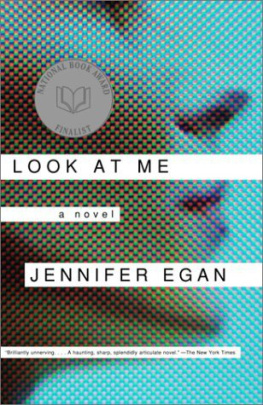Egan - Learning in Depth: A Simple Innovation That Can Transform Schooling
Here you can read online Egan - Learning in Depth: A Simple Innovation That Can Transform Schooling full text of the book (entire story) in english for free. Download pdf and epub, get meaning, cover and reviews about this ebook. City: Chicago, year: 2011;2010, publisher: University of Chicago Press, genre: Religion. Description of the work, (preface) as well as reviews are available. Best literature library LitArk.com created for fans of good reading and offers a wide selection of genres:
Romance novel
Science fiction
Adventure
Detective
Science
History
Home and family
Prose
Art
Politics
Computer
Non-fiction
Religion
Business
Children
Humor
Choose a favorite category and find really read worthwhile books. Enjoy immersion in the world of imagination, feel the emotions of the characters or learn something new for yourself, make an fascinating discovery.
Learning in Depth: A Simple Innovation That Can Transform Schooling: summary, description and annotation
We offer to read an annotation, description, summary or preface (depends on what the author of the book "Learning in Depth: A Simple Innovation That Can Transform Schooling" wrote himself). If you haven't found the necessary information about the book — write in the comments, we will try to find it.
Egan: author's other books
Who wrote Learning in Depth: A Simple Innovation That Can Transform Schooling? Find out the surname, the name of the author of the book and a list of all author's works by series.
Learning in Depth: A Simple Innovation That Can Transform Schooling — read online for free the complete book (whole text) full work
Below is the text of the book, divided by pages. System saving the place of the last page read, allows you to conveniently read the book "Learning in Depth: A Simple Innovation That Can Transform Schooling" online for free, without having to search again every time where you left off. Put a bookmark, and you can go to the page where you finished reading at any time.
Font size:
Interval:
Bookmark:
KIERAN EGAN is a professor of education at Simon Fraser University. He is also a winner of the Grawemeyer Award in Education, a Kappa Delta Pi Laureate, an American Educational Research Association Fellow, a foreign associate member of the National Academy of Education, a Fellow of the Royal Society of Canada, Director of the Centre for Imaginative Education, and a Canada Research Chair in Cognitive Development and the Curriculum.
The University of Chicago Press, Chicago 60637
The University of Chicago Press, Ltd., London
2010 by Kieran Egan
All rights reserved. Published 2010
Printed in the United States of America
19 18 17 16 15 14 13 12 11 10 1 2 3 4 5
ISBN-13: 978-0-226-19043-3 (cloth)
ISBN-10: 0-226-19043-9 (cloth)
ISBN-13: 978-0-226-19045-7 (e-book)
Library of Congress Cataloging-in-Publication Data
Egan, Kieran.
Learning in Depth : a simple innovation that can transform schooling / Kieran Egan.
p. cm.
Includes bibliographical references.
ISBN-13: 978-0-226-19043-3 (cloth: alk. paper)
ISBN-10: 0-226-19043-9 (cloth: alk. paper)
1. Learning in Depth (Program) 2. Educational innovations. 3. Curriculum change. 4. Active learning. 5. Research. 6. Knowledge, Theory of. I. Title
LB1027.E4135 2010
371.2'07dc22
2010011679
 The paper used in this publication meets the minimum requirements of the American National Standard for Information SciencesPermanence of Paper for Printed Library Materials, ANSI Z39.48-1992.
The paper used in this publication meets the minimum requirements of the American National Standard for Information SciencesPermanence of Paper for Printed Library Materials, ANSI Z39.48-1992.
Learning in Depth
A Simple Innovation That Can Transform Schooling
KIERAN EGAN
The University of Chicago Press
Chicago and London
Contents
Acknowledgments
I am grateful for the helpful criticism given to drafts of this book by my colleagues in the Imaginative Education Research Group at Simon Fraser University in Canada. I am particularly grateful to Gillian Judson, Kym Stewart, Tannis Calder, and Krystina Madej for reading the manuscript and making incisive criticisms and suggestions for improving it. I gained a lot of helpful suggestions from the great students in Simon Fraser Universitys Imaginative Education M.Ed. cohorts, with particular thanks for specific suggestions to Hannah Bernardino, Karen Faryna, Lili Ge, Laura Kenny, Kangja Lee, Sean McLaughlin, Bratislav Mladenovic, Nancy Palejko, Sylvia Showler, Emily White, Sharon Widdows, Erica Zaiser, J. O. Eriksson, David Futter, Patricia Goodson, Lezley Hiebert, Dennis Kraft, Jenifer Morrison, Sara Neall, Stacey Soffel, Todd Stewart-Rinier, Andy Sundahl, Paul Wright, Dmitri Zebroff, and Yvan Zebroff. During classes with these teachers/students I first mentioned the Learning in Depth idea, and Linda Holmes and David Futter decided to give it a go in their own classrooms, producing the first implementations of the idea. I am most grateful for their ingenuity and commitment in putting the idea into practice, for providing me with the encouragement to keep writing the book as a result of their wonderfully successful work with the first groups of LiDKids, and for providing their students with an enriching experience.
Bob Dunton, principal of the remarkable Corbett Charter School, and the impressive teachers of Corbett have raised questions, concerns, and ideas that have made this book more clear and practical than it might otherwise have been. Also their careful planning for an extensive implementation has been both encouraging and enlightening; to see superbly professional teachers taking an idea and articulating it into the complex context of their classrooms daily life has been inspiring. Craig Worthing and the teachers of Anderson Elementary School, Richmond, B.C., were really helpful in the process of thinking through many of the potential practical and theoretical problems with the proposal. Hugh Burke, headmaster of Meadowridge School in Maple Ridge, B.C., was generous with his time and insights, as was Di Fleming, director of Accelerated Knowledge Technologies Pty Ltd., Melbourne, Australia. Laurie Anderson, acting superintendent, Vancouver School Board, gave me some helpful insights into administrators views of the proposal, and support in locating schools interested in implementing LiD, as did Dr. Fred Renihan, ex-superintendent of the Surrey School Board. Dr. Geoff Madoc-Jones, coordinator of the Ed.D. program in the Faculty of Education, Simon Fraser University, and Dr. Jean Warburton both have contributed helpful insights into how the program might work. I am grateful also for specific help from Drs. Robin Barrow, Heesoon Bai, Allan MacKinnon, and Don McLeod of SFUs Faculty of Education; Dr. Gadi Alexander of Ben Gurion University; Isabelle Eaton, researcher with the Canadian Council on Learning; Teresa Martin, administrative coordinator of the IERG; Melanie Young and Stacey Makortoff, research assistants on the LiD project; and also from Pamela Thomas and Susanna Egan. I received many insightful suggestions on both form and content from Catherine Egan.
During the writing of this book I have been the grateful beneficiary of a grant from the Social Sciences and Humanities Research Council of Canada.
Important in improving the book in more ways than I can enumerate has been Elizabeth Branch Dyson of the University of Chicago Press. The book appears in its current formfrom a number of its structural features down to details of the content and not least as a part of Chicagos listdue to her commitment, good advice, many suggestions for improvement, good humor, and having more of the virtues of a good editor than any author has a right to expect. I am immensely grateful to her, and, should the book lead to implementations of the Learning in Depth program, the expertise of children who may take part in the program will owe something to heran odd kind of silent tribute that may persist for a long time.
Introduction
One of the constants in the sequence of human generations, as far back as we have records, is the older ones bewailing the ignorance of the younger ones. Another constant is the older ones saying that they know that all previous older generations bewailed the ignorance of their younger successors, but that this time it really is uniquely, cataclysmically bad. Our younger generation is demonstrating ignorance on a scale that dwarfs that of all previous ignorant generations; our younger generation has them all beat when it comes to minds of desertlike vacuousness. The kids these days know nothing, except the words of pop songs drilled into their brains through wrecked ears from jabbering iPods. Our younger generation, to a degree like none before it, has been the victim of years of successful dumbing-down by TV and Hollywood movies, which have served huge numbers of them in the place of family life, interactions with knowledgeable adults, and experience of the natural world.
Those who have taught many years of undergraduate students in universities, where one might expect better-educated young people to show up, claim that the ranks of recent years really do take some beating. Its not, one professor recently complained to me, that they dont recall the provisions of the Treaty of Versailles, they dont recall there had been a treaty, or why it occurred, or what a treaty is, or Whos Versailles anyway? and on and on, exposing a seemingly unbounded abyss of ignorance. And they are entirely content in the abyss, concerned in a generally friendly way that I am troubled by their ignorance of pretty well all the history they were taught in school. It isnt, they tell me, relevant to their lives now. And in all their school years clearly no one has shown them how it might be relevant to their lives.
Certainly all those college students had been taught about the Treaty of Versailles in their school years, and a huge number of other things they seem not to know. Dividing fractions, proving that interior opposite angles of a parallelogram are congruent, composing grammatical sentences, analyzing arguments, identifying countries on an unmarked map of the world, and on and on, have been taught to all students, but the knowledge, if it rested in their minds at all, disappeared like frost on a spring morning. Look at the curriculum guides for all those years of school: they are like a vast encyclopedia of human knowledge. But it is as though all that knowledge was taught to students in a foreign language for all the effect it has had on their minds by the time they leave schoolaccording to the results of tests. (These depressing results have been consistent from the influential 1981 Educational Testing Service report [Barrows et al.] and the Nation at Risk report [National Commission on Excellence in Education 1983], to more recent dramatic summaries, such as Bauerleins charmingly titled
Next pageFont size:
Interval:
Bookmark:
Similar books «Learning in Depth: A Simple Innovation That Can Transform Schooling»
Look at similar books to Learning in Depth: A Simple Innovation That Can Transform Schooling. We have selected literature similar in name and meaning in the hope of providing readers with more options to find new, interesting, not yet read works.
Discussion, reviews of the book Learning in Depth: A Simple Innovation That Can Transform Schooling and just readers' own opinions. Leave your comments, write what you think about the work, its meaning or the main characters. Specify what exactly you liked and what you didn't like, and why you think so.


